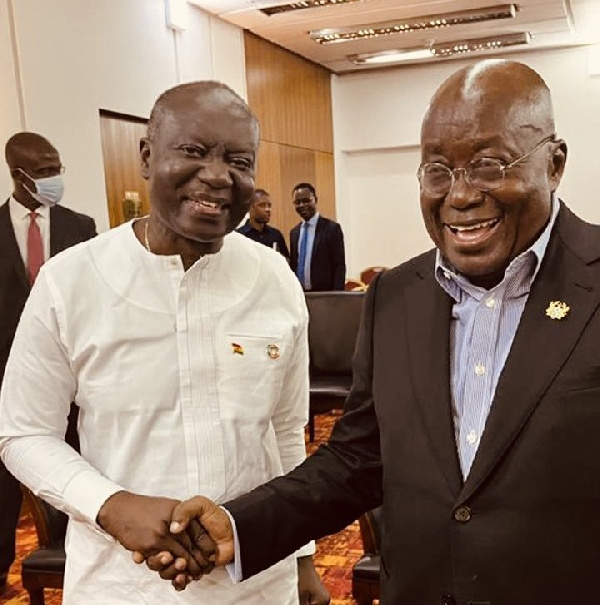- by Admin
- November 29, 2023
Click the link below to join Our WhatsApp group for daily brief on current trends in the country.
Join Here!
Loading

According to the IMF, Ghana is facing fiscal challenges primarily due to its structurally weak domestic revenue mobilization. Several reforms are expected to be implemented or planned to address this issue, such as increasing the VAT rate from 12.5% to 15%, restructuring the E-levy, removing discounts on benchmark values at customs, and revising income-based taxes have been projected to contribute 1% to the GDP by the end of 2023.
Trade unions have called for the removal of various taxes, but the government faces a dilemma. Can it afford to remove any taxes in the 2024 Budget without negatively impacting its deal with the IMF? Ghana has committed to enhancing its revenue mobilisation as it awaits subsequent disbursements from the IMF, having received the first $600 million out of a total package of $3 billion. Consequently, the government cannot unilaterally decide on policies like tax removal or restructuring that could affect its revenue mobilization goals under the three-year IMF program – it needs approval from the Fund.
It is worth noting that the controversial E-levy which was introduced to add about $600 million to the revenue box is likely to miss its target for the second time since its inception in 2022, and might affect the government's total revenue target for 2023. Tax revenue's contribution to GDP under the IMF program is expected to increase from 13.1% last year to 14% by the end of this year. The IMF expects Ghana's tax-to-GDP ratio to rise to 14.7% in the election year of 2024, 15.3% by 2025, and 16.2% by the end of 2026. The majority of tax revenue comes from the formal sector, while the informal sector's contribution has been comparatively limited.
As Ghana's debt servicing obligations increase rapidly, seeking debt relief in both domestic and external contexts has become essential. This is to prevent debt from consuming a significant portion of the country's revenue and also help create the fiscal space needed for government spending on critical sectors such as education and health. A domestic debt exchange program has already saved the government up to $6 billion in 2023, and further efforts are expected at the external level, where a substantial portion of Ghana's $30 billion external debt is up for restructuring.
The 2024 budget will be particularly significant as it will incorporate elements from the IMF program and outline key expenditure items for the year. Ghana aims to increase its tax-to-revenue ratio from 78% to over 80% in 2024 while also implementing measures to reduce wasteful spending.
The Ghana Revenue Authority (GRA) is facing significant pressure to achieve its tax revenue target of approximately $12 billion this year. After falling short of the expected revenue from the contentious electronic transaction levy, projected at $700 million in the 2022 fiscal year, the GRA has shifted its focus to alternative digital methods of taxation. Starting in April 2022, the GRA mandated that e-commerce and digital platforms operating without a physical presence in the country must file tax returns and make monthly tax payments, mirroring the obligations of local businesses. This tax framework, often referred to in Ghana as the "social media tax," is projected to yield around GH¢2.7 billion (equivalent to US$372 million) in its inaugural year. The intention was to encompass enterprises like those on Facebook, Whatsapp, Netflix, Amazon, and similar platforms.
The GRA estimated collecting approximately GH¢1.7 billion from betting and gaming firms and an additional GH¢1 billion from digital platforms such as Google, Instagram, TikTok, Facebook, and other players in the e-commerce sector. Additionally, the Ministry of Finance (MoF), Ghana Revenue Authority (GRA), and Ministry of Communications and Digitalisation (MoC) have collaborated on strategies to boost revenue from Over-The-Top (OTT) digital services, as a growing number of telecommunication customers transition away from traditional voice and print services, leading to decreased government income. According to section 16(2) of the Value Added Tax Act 2013, Act 870, Electronic Commerce (e-commerce) refers to business transactions conducted through electronic data transmission over communication networks, such as the Internet.
Ghana is presently under an IMF Extended Credit Facility (ECF) programme and is in dying need of revenue. It has assured the Fund that it is taking measures to enhance Value Added Tax (VAT) compliance, with the e-VAT invoicing system, launched in October 2022, intended to establish electronic invoicing as the sole method for issuing VAT invoices. This system aims to cover all major taxpayers by the end of June 2023 and encompass about 80 percent of total VAT revenue by the end of 2023. The objective is for all registered taxpayers to be included by the end of 2024.
Implementing VAT on e-commerce signifies the commencement of digitalizing taxation in Ghana. In the contemporary world, data is more valuable than gold or oil. Numerous major global entities are no longer traditional manufacturers, wholesalers, retailers, or landlords, but rather platform providers, data aggregators, and digital advertisers. Amidst these developments, experts advise the government to avoid double taxation and the overburdening of the former sector, which contributes over 60 percent of all GRA-generated taxes.
Source: Isaac Kofi Agyei

Click the link below to join Our WhatsApp group for daily brief on current trends in the country.
Join Here!
0 Comments: